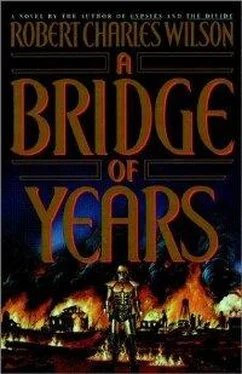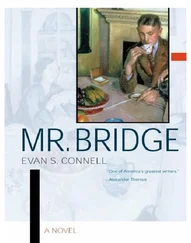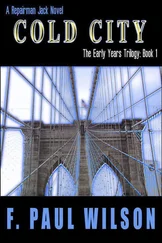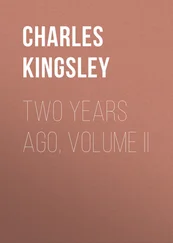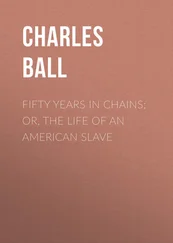By the time Billy was five anyone who could afford to had migrated out of the southeastern coastal states. But the poor stayed behind, joined by refugees from the Caribbean and Central America seeking the relative safety of these ruined American cities. There were food riots, secession riots. Washington dispatched troops.
By the time he was conscripted the war had been going on for nearly a decade. It had turned into one of those festering conflicts all but ignored by the prestigious European news cartels. A senseless effort, some said, to preserve as American territory a swath of land rapidly growing uninhabitable. But the war went on. Billy didn’t much care about it, not at first. Recruited at the age of twelve, he was shipped around to various training and indoctrination bases, mainly out west. He spent a couple of years guarding the transcontinental railway tracks where they passed through insurgent territory in Nevada, where water-poor locals had tried to dynamite the trains a couple of times. Billy didn’t see any action, but he loved to watch the trains go by. Big silver bullets shimmering in the sun haze, loaded with grain, ingots, armaments, liquid hydrogen. The trains levitated soundlessly from horizon to horizon and left dust-devils dancing in their wake. Billy imagined himself riding one of those trains to Ohio. But it was impossible. He’d be AWOL; there were travel restrictions. He’d be shot. But it was a lovely thing to think about.
He was lonely in Nevada. He lived in a stone barracks with three other recruits and an aging, armored CO named Skolnik. Billy wondered whether he would ever see a woman, hold a woman, marry a woman, have children with a woman. Billy was technically assigned to an armored division of the 17th Infantry, but he hadn’t been issued his armor yet; privately, he hoped he never would. Some recruits did a term of menial labor and were released back into their communities. Maybe that would happen to him. Billy was careful to do everything he was asked to do—but slowly, ploddingly. It was a form of silent rebellion.
It didn’t work. On his seventeenth birthday, Billy was shipped east for treatment.
They gave him his armor and they posted him to the Zone.
He woke in the movie theater on Forty-second Street and shuffled outside into a miserably humid night.
Walking home, he felt a surge of energy, like needlepricks on his skin—a trickle from the gland in his elytra, Billy presumed. That was a good sign and it made him optimistic. Maybe the malfunction was temporary.
His thoughts were more coherent, at least.
Home, he attached the headgear to his armor and prayed the diagnostics were still working.
His eyepiece bled graphs and numbers into his field of vision. A complete diagnostic sequence took more than an hour, but Billy knew what all the numbers ought to be. He ran down his electrical systems, then started on the biologicals. Everything came up normal or near normal except for two items: a local blood pressure and the temps on a tiny circulatory pump. Billy finished the general diagnostic, then called back those numbers for a closer look. He asked the armor for a complete sequence on the abdominals and waited nervously for the results.
More numbers appeared, chiefly pressure readings. But Billy understood what these misplaced decimal points implied: a blood clot had lodged in the reedlike lancet.
Billy climbed out of his armor.
He hadn’t powered all the way up, though he had worn the armor a great deal in the last week, and maybe that was good—a full power-up would have placed greater demands on the gland in the elytra, perhaps thrown the clot into an artery. He might have died.
But the Need was still very great.
The armor was limp in his hand. He turned the flexible elytra inside out and deployed the lancet—a long, narrow microtube still wet with blood.
Here was where the clot had lodged.
Billy went to the kitchen and put a pot of water on the stove. As it boiled, he shook in a handful of Morton salt to approximate the salinity of human blood. This was “emergency field service,” a technique he had never tried, though he remembered it from training.
When the water was cool enough to touch, Billy dipped the lancet in.
Micropumps responded to the heat. Threads of dark blood oozed into the pot.
He couldn’t tell whether the clot had dissolved.
He cleaned the lancet and retracted it. Then he wrapped the elytra around his body, sealed them, and ran the diagnostics again.
The numbers looked better. Not perfect—but of course it was hard to tell until he plugged the lancet into his body and allowed his own blood to course through it.
Billy activated that system.
He felt the lancet slide under his skin. It stung a little— perhaps some salt still clinging to the microtube in spite of its own sterilants and anesthetics. But at least—
Ah.
—it seemed to be working.
Billy experienced a dizzy sense of triumph. He set out from the apartment at once.
He had lost a lot of time. It was late now. A street-cleaning truck had passed this way and Billy caught the reflection of a fingernail moon in the empty, wet asphalt.
Only an interruption, he told himself. How childish to have been so frightened of a minor malfunction. But understandable: all his courage came from the armor.
He thought about the secret gland hidden in the folds of the elytra.
It was dormant when the armor was folded away, tissues bathed in life-suspending chemicals. But the gland was a living thing—grown, he supposed, in a factory somewhere, a critically altered mutation of a thalamus or thyroid. When it lived, it lived on Billy’s blood—pumped in from an artery through the stylet, processed and pumped back through the lancet. The gland secreted the chemicals that made Billy the fine hunter he was tonight.
But because the gland was alive it might age, might be susceptible to disease, tumors, toxins—Billy simply didn’t know. For all the armor’s inbuilt diagnostics, such problems were necessarily the business of the infantry doctors.
No infantry doctors here.
He wondered whether his gland had been damaged by the blood clot. Whether it would clot again. Maybe it would … maybe this last episode had been a token of his own mortality.
But no, Billy thought, that’s wrong. I am Death. That’s what I am tonight. And Death can’t die.
He laughed out loud, an overflow of joy. It felt good to be hunting again.
He went to the place his prey had gone, where the hunt had been interrupted. He adjusted the bandwidth on his eyepiece and saw a dust of blue light in the doorway, very faint. And up the stairs.
Tonight, Billy thought, it would all come together.
Tonight, at last, he would kill someone.
Catherine backed out of the woodshed, turned and ran, stumbling over the berry-bush runners and scratching herself on the thorns. She didn’t feel any of this. She was too frightened.
The thing in the shed was— Was unnameable. Was not human.
Was a pulsating travesty of a human being.
She ran until she was breathless, then braced herself against a tree trunk, gasping and coughing. Her lungs ached and her unprotected arms were bloody from the nettles. The forest around her was silent, large, and absurdly sunny. Tree-tops moved in the breeze.
She sat down among the pine needles, hugging herself.
Be sensible, Catherine thought. Whatever it is, it can’t hurt you. It can’t move.
It had been bloody and helpless. Maybe not a monster, she thought; maybe a human being in some terrible kind of distress, skinned, mutilated …
But a mutilated human being would not have said “Help me” in that calm and earnest voice.
Читать дальше
